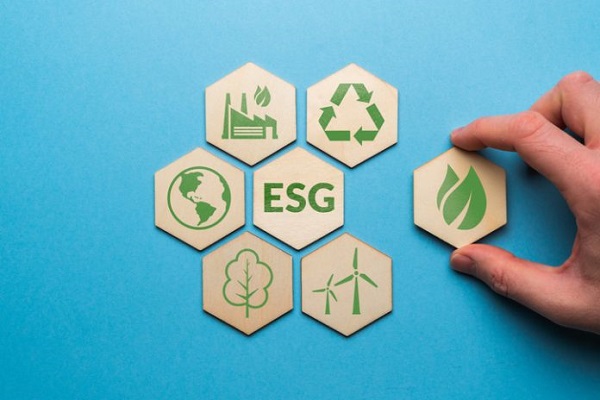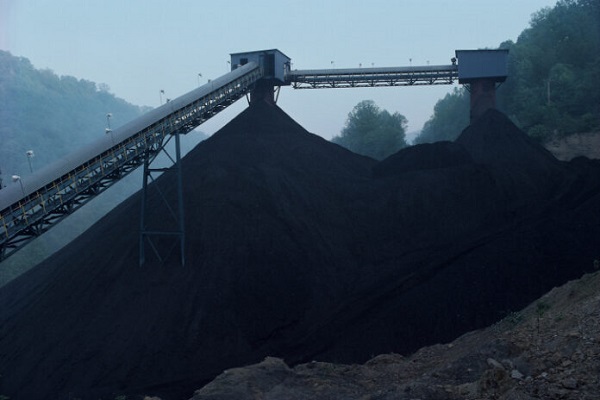Business
Bank of Canada showers executives with $3.5 million in bonuses in 2022

From the Canadian Taxpayers Federation
Author: Franco Terrazzano
The Bank of Canada lavished millions of dollars in bonuses on its executives last year amid seven interest rate hikes and the worst inflation crisis in four decades, according to access-to-information records obtained by the Canadian Taxpayers Federation.
All but two of the central bank’s 82 executives (97.5 per cent) received an “at-risk pay” bonus. Twenty-five received a “performance pay” bonus.
The average bonus among Bank of Canada executives last year was $43,700, for a total cost of more than $3.5 million.
“Executives at the Bank of Canada shouldn’t be showering themselves with big bonuses when Canadians can’t afford gas, groceries or mortgages,” said Franco Terrazzano, CTF Federal Director. “Most organizations don’t give 98 per cent of their executives bonuses when they have their worst year in four decades.”
Executive bonuses at the Bank of Canada total nearly $21 million since 2015. Since then, the size of the executive class at the Bank of Canada spiked by 18 per cent.
Table: Executive bonuses at Bank of Canada, 2015-2022
|
Year |
Number of executives |
Bonuses |
|
2015 |
69 |
$683,794 |
|
2016 |
70 |
$550,064 |
|
2017 |
71 |
$2,572,915 |
|
2018 |
73 |
$2,923,613 |
|
2019 |
78 |
$3,261,123 |
|
2020 |
79 |
$3,594,681 |
|
2021 |
79 |
$3,785,902 |
|
2022 |
82 |
$3,588,324 |
|
Total |
|
$20,960,416 |
The records provided by the Bank of Canada indicate its executives did not receive “at-risk” bonus pay in 2015 or 2016.
It was a bumpy year for the Bank of Canada in 2022.
The Bank of Canada’s mandate is to keep “an inflation target of two per cent inside a control range of one to three per cent.”
But inflation was 6.8 per cent in 2022, representing “a 40-year high, the largest increase since 1982,” according to Statistics Canada. The Bank of Canada also failed to meet its inflation target in 2021.
After Bank of Canada Governor Tiff Macklem told Canadians in 2020 that interest rates would remain low for a “long time,” the central bank turned around and hiked interest rates seven times in 2022.
In 2022, Macklem admitted “we got some things wrong” and the deputy governor acknowledged “we haven’t managed to keep inflation at our target,” adding that Canada’s central bankers “should be held accountable.”
“Handing out big bonus cheques is an odd way to hold your organization accountable,” Terrazzano said. “Canadians have every right to be furious when they find out executives at their central bank were taking bonuses as inflation and interest rates soared.”
Speaking at an event organized by the Canadian Federation of Independent Business in July 2022, Macklem told companies not to adjust wages for inflation, sparking outrage among labour leaders.
All told, bonuses at the Bank of Canada total about $55 million since 2020, according to separate access-to-information records obtained by the CTF.
Business
ESG Puppeteers

From Heartland Daily News
By Paul Mueller
The Environmental, Social, and Governance (ESG) framework allows a small group of corporate executives, financiers, government officials, and other elites, the ESG “puppeteers,” to force everyone to serve their interests. The policies they want to impose on society — renewable energy mandates, DEI programs, restricting emissions, or costly regulatory and compliance disclosures — increase everyone’s cost of living. But the puppeteers do not worry about that since they stand to gain financially from the “climate transition.”
Consider Mark Carney. After a successful career on Wall Street, he was a governor at two different central banks. Now he serves as the UN Special Envoy on Climate Action and Finance for the United Nations, which means it is his job to persuade, cajole, or bully large financial institutions to sign onto the net-zero agenda.
But Carney also has a position at one of the biggest investment firms pushing the energy transition agenda: Brookfield Asset Management. He has little reason to be concerned about the unintended consequences of his climate agenda, such as higher energy and food prices. Nor will he feel the burden his agenda imposes on hundreds of millions of people around the world.
And he is certainly not the only one. Al Gore, John Kerry, Klaus Schwab, Larry Fink, and thousands of other leaders on ESG and climate activism will weather higher prices just fine. There would be little to object to if these folks merely invested their own resources, and the resources of voluntary investors, in their climate agenda projects. But instead, they use other people’s resources, usually without their knowledge or consent, to advance their personal goals.
Even worse, they regularly use government coercion to push their agenda, which — incidentally? — redounds to their economic benefit. Brookfield Asset Management, where Mark Carney runs his own $5 billion climate fund, invests in renewable energy and climate transition projects, the demand for which is largely driven by government mandates.
For example, the National Conference of State Legislatures has long advocated “Renewable Portfolio Standards” that require state utilities to generate a certain percentage of electricity from renewable sources. The Clean Energy States Alliance tracks which states have committed to moving to 100 percent renewable energy, currently 23 states, the District of Columbia, and Puerto Rico. And then there are thousands of “State Incentives for Renewables and Efficiency.”
Behemoth hedge fund and asset manager BlackRock announced that it is acquiring a large infrastructure company, as a chance to participate in climate transition and benefit its clients financially. BlackRock leadership expects government-fueled demand for their projects, and billions of taxpayer dollars to fund the infrastructure necessary for the “climate transition.”
CEO Larry Fink has admitted, “We believe the expansion of both physical and digital infrastructure will continue to accelerate, as governments prioritize self-sufficiency and security through increased domestic industrial capacity, energy independence, and onshoring or near-shoring of critical sectors. Policymakers are only just beginning to implement once-in-a-generation financial incentives for new infrastructure technologies and projects.” [Emphasis added.]
Carney, Fink, and other climate financiers are not capitalists. They are corporatists who think the government should direct private industry. They want to work with government officials to benefit themselves and hamstring their competition. Capitalists engage in private voluntary association and exchange. They compete with other capitalists in the marketplace for consumer dollars. Success or failure falls squarely on their shoulders and the shoulders of their investors. They are subject to the desires of consumers and are rewarded for making their customers’ lives better.
Corporatists, on the other hand, are like puppeteers. Their donations influence government officials, and, in return, their funding comes out of coerced tax dollars, not voluntary exchange. Their success arises not from improving customers’ lives, but from manipulating the system. They put on a show of creating value rather than really creating value for people. In corporatism, the “public” goals of corporations matter more than the wellbeing of citizens.
But the corporatist ESG advocates are facing serious backlash too. The Texas Permanent School Fund withdrew $8.5 billion from Blackrock last week. They join almost a dozen state pensions that have withdrawn money from Blackrock management over the past few years. And last week Alabama passed legislation defunding public DEI programs. They follow in the footsteps of Florida, Texas, North Carolina, Utah, Tennessee, and others.
State attorneys general have been applying significant pressure on companies that signed on to the “net zero” pledges championed by Carney, Fink, and other ESG advocates. JPMorgan and State Street both withdrew from Climate Action 100+ in February. Major insurance companies started withdrawing from the Net-Zero Insurance Alliance in 2023.
Still, most Americans either don’t know much about ESG and its potential negative consequences on their lives or, worse, actually favour letting ESG distort the market. This must change. It’s time the ESG puppeteers found out that the “puppets” have ideas, goals, and plans of their own. Investors, taxpayers, and voters should not be manipulated and used to climate activists’ ends.
They must keep pulling back on the strings or, better yet, cut them altogether.
Paul Mueller is a Senior Research Fellow at the American Institute for Economic Research. He received his PhD in economics from George Mason University. Previously, Dr. Mueller taught at The King’s College in New York City.
Originally posted at the American Institute for Economic Research, reposted with permission.
Automotive
Red States Sue California and the Biden Administration to Halt Electric Truck Mandates

From Heartland Daily News
By Nick Pope
“California and an unaccountable EPA are trying to transform our national trucking industry and supply chain infrastructure. This effort—coming at a time of heightened inflation and with an already-strained electrical grid—will devastate the trucking and logistics industry, raise prices for customers, and impact untold number of jobs across Nebraska and the country”
Large coalitions of red states are suing regulators in Washington, D.C., and California over rules designed to effectively require increases in electric vehicle (EV) adoption.
Nebraska is leading a 24-state coalition in a lawsuit against the Environmental Protection Agency’s (EPA) recently-finalized emissions standards for heavy-duty vehicles in the U.S. Court of Appeals for the D.C. Circuit, and a 17-state coalition suing the state of California in the U.S. District Court for the Eastern District of California over its Advanced Clean Fleet rules. Both regulations would increase the number of heavy-duty EVs on the road, a development that could cause serious disruptions and cost increases across the U.S. economy, as supply chain and trucking sector experts have previously told the Daily Caller News Foundation.
“California and an unaccountable EPA are trying to transform our national trucking industry and supply chain infrastructure. This effort—coming at a time of heightened inflation and with an already-strained electrical grid—will devastate the trucking and logistics industry, raise prices for customers, and impact untold number of jobs across Nebraska and the country,” Republican Nebraska Attorney General Mike Hilgers said in a statement. “Neither California nor the EPA has the constitutional power to dictate these nationwide rules to Americans. I am proud to lead our efforts to stop these unconstitutional attempts to remake our economy and am grateful to our sister states for joining our coalitions.”
(RELATED: New Analysis Shows Just How Bad Electric Trucks Are For Business)
While specifics vary depending on the type of heavy-duty vehicle, EPA’s emissions standards will effectively mandate that EVs make up 60% of new urban delivery trucks and 25% of long-haul tractors sold by 2032, according to The Wall Street Journal. The agency has also pushed aggressive emissions standards for light- and medium-duty vehicles that will similarly force an increase in EVs’ share of new car sales over the next decade.
California’s Advanced Clean Fleet rules, meanwhile, will require that 100% of trucks sold in the state will be zero-emissions models starting in 2036, according to the California Air Resources Board (CARB). While not federal, the California rules are of importance to other states because there are numerous other states who follow California’s emissions standards, which can be tighter than those required by the EPA and other federal agencies.
Critics fear that this dynamic will effectively enable California to set national policies and nudge manufacturers in the direction of EVs at a greater rate and scale than the Biden administration is pursuing.
Trucking industry and supply chain experts have previously told the DCNF that both regulations threaten to cause serious problems for the country’s supply chains and wider economy given that the technology for electric and zero-emissions trucks is simply not yet ready to be mandated at scale, among other issues.
Neither CARB nor the EPA responded immediately to requests for comment.
Nick Pope is a contributor to The Daily Caller News Service.
Originally published by The Daily Caller. Republished with permission.
-

 Automotive1 day ago
Automotive1 day agoGovernments in Canada accelerate EV ‘investments’ as automakers reverse course
-

 Health21 hours ago
Health21 hours agoSouth Korean president declares low birth rate a ‘national emergency,’ plans new ministry to address it
-

 COVID-192 days ago
COVID-192 days agoJapan’s most senior cancer doctor: COVID shots are ‘essentially murder’
-

 Economy1 day ago
Economy1 day agoBiden signs suicidal ‘No Coal’ pact, while rest of world builds 1,000 new plants
-

 conflict14 hours ago
conflict14 hours agoWhite House Reportedly Worried About Russia’s Sudden Momentum Months After Biden Declared Putin ‘Already Lost’ War
-

 Crime15 hours ago
Crime15 hours agoSlovakian prime minister who opposed WHO Pandemic Treaty shot in assassination attempt
-

 Alberta19 hours ago
Alberta19 hours agoFortis et Liber: Alberta’s Future in the Canadian Federation
-

 COVID-192 days ago
COVID-192 days agoTrudeau government only sought legal advice after Emergencies Act was invoked, records indicate








